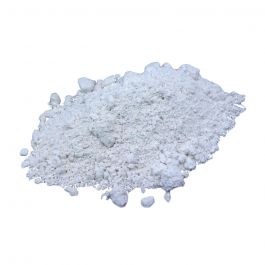- Language
- 🇺🇸
- Joined
- Mar 1, 2024
- Messages
- 322
- Reaction score
- 415
- Points
- 63
Zou aluminium het niet verdachter maken? Dan is het duidelijk dat je iets verbergt. Maar ik zou het niet weten, ik heb nog nooit drugs opgestuurd.
- Language
- 🇬🇧
- Joined
- Jan 19, 2024
- Messages
- 45
- Reaction score
- 28
- Points
- 18
Veel mensen zeggen dat aluminium helpt bij het blokkeren van röntgenstraling, maar ik denk dat het een mythe is
Lood helpt bij het blokkeren van röntgenstralen door zijn dichtheid van 11400kg/m³, maar aluminium heeft slechts 2700kg/m³, dus ik denk dat het nutteloos is.
Alleen goed om de dope in te wikkelen
Lood helpt bij het blokkeren van röntgenstralen door zijn dichtheid van 11400kg/m³, maar aluminium heeft slechts 2700kg/m³, dus ik denk dat het nutteloos is.
Alleen goed om de dope in te wikkelen
↑View previous replies…
- Language
- 🇺🇸
- Joined
- Jan 23, 2024
- Messages
- 110
- Reaction score
- 47
- Points
- 28
- Deals
- 12
Onzin! Aluminiumfolie blokkeert geen röntgenstraling.
Jouw dope is een hoop organische moleculen. organisch ziet er anders uit dan metaal op röntgenstraling, en is te onderscheiden.
Als je röntgenstraling wilt blokkeren, moet je je dope onderdompelen in het gelijksoortige organische omhulsel om het eruit te laten zien als iets onschuldigs. maar op dit punt stop ik omdat ik niet bereid ben mijn eigen stealth methodes bekend te maken.
Jouw dope is een hoop organische moleculen. organisch ziet er anders uit dan metaal op röntgenstraling, en is te onderscheiden.
Als je röntgenstraling wilt blokkeren, moet je je dope onderdompelen in het gelijksoortige organische omhulsel om het eruit te laten zien als iets onschuldigs. maar op dit punt stop ik omdat ik niet bereid ben mijn eigen stealth methodes bekend te maken.
- Language
- 🇺🇸
- Joined
- May 8, 2024
- Messages
- 36
- Reaction score
- 9
- Points
- 8
Theoretically aluminum can shield against electromagnetic waves, also x-ray.
But the thin layers used mostly are not enough.
There are different ways through which a material can block electromagnetic waves.
Scattering and absorption which often happens in high density, but it also works through the conductivity of a metal, and aluminum and copper for example have a good conductivity, and this allows them to absorb energy from the electromagnetic radiation pretty well, because of their free electrons.
But you would need a thick layer of aluminum, the normal foil is not going to do that well-
But the thin layers used mostly are not enough.
There are different ways through which a material can block electromagnetic waves.
Scattering and absorption which often happens in high density, but it also works through the conductivity of a metal, and aluminum and copper for example have a good conductivity, and this allows them to absorb energy from the electromagnetic radiation pretty well, because of their free electrons.
But you would need a thick layer of aluminum, the normal foil is not going to do that well-
- Language
- 🇺🇸
- Joined
- May 8, 2024
- Messages
- 36
- Reaction score
- 9
- Points
- 8
Also the shielding ability of aluminum is better (lot better) at lower frequencies, and thickness would need to be increased a lot to shield effectively against x-rays. Also at such high frequencies like x-ray denser materials with high Z are normally required because they have a higher probability of interacting with high energy electromagnetic waves, but theoretically every conductor can block them t some point, also aluminum, but you need a very thick layer which is not practical.

